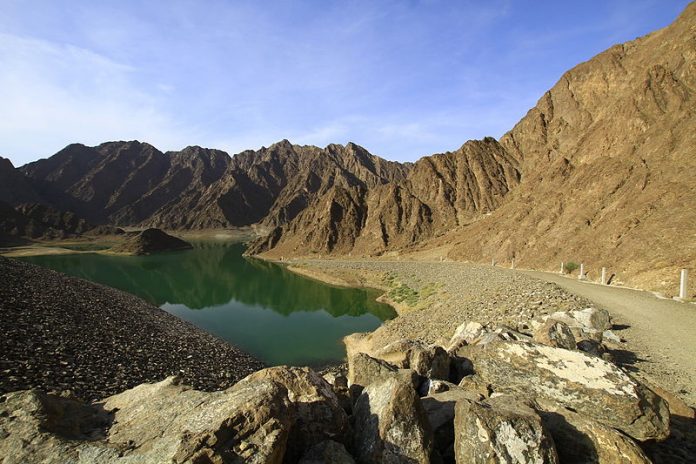Construction work progresses on first of its kind hydroelectric power station in Arabian Gulf region
- July 28, 2020
- Posted by: administrator
- Category: Companies, Engineering, Middle East

Work is progressing on construction of the hydroelectric power station in Hatta in Dubai – the pumped-storage hydroelectric power station is the first of its kind in the Arabian Gulf region.
The 250MW station will generate electricity by making use of the water stored in Hatta Dam. It will have a storage capacity of 1,500 MWh and a life span of 80 years, with investments totalling around AED1.421 billion.
The hydroelectric power station will use water in the Hatta Dam and an upper reservoir that will be built in the mountain. During off-peak hours, advanced turbines will use clean solar power from the Mohammed bin Rashid Al Maktoum Solar Park to pump water from the dam to the upper reservoir.
Turbines operated by the speed of waterfall from the upper reservoir will be used to generate electricity through a 1.2 kilometres subterranean water canal, with high efficiency in power generation and storage, and with a 90-second response to demand for electricity.
On a visit to the site to review progress, HE Saeed Mohammed Al Tayer, MD & CEO of Dubai Electricity and Water Authority (DEWA) and his delegation were briefed about the project by Dirk Leitzig from Strabag AG, the project’s developer.
Tunnelling operations – a critical phase in the scheme – have now started at the hydroelectric station.
“This strategic project will diversify the energy mix and support Hatta’s economic, social and environmental development. It will also help achieve the goals of the Dubai Clean Energy Strategy 2050 to provide 75% of Dubai’s total power output from clean energy by 2050” Al Tayer said
DEWA awarded the construction contract of the pumped-storage hydroelectric power station at Hatta to a consortium that includes Strabag AG, Strabag Dubai LLC, Andritz Hydro, and Ozkar. Électricité de France (EDF) is the consultant of the project, which is scheduled to be commissioned by February 2024.
